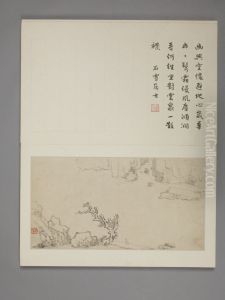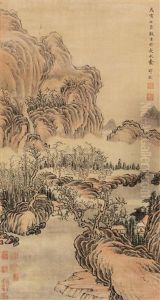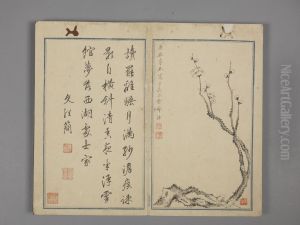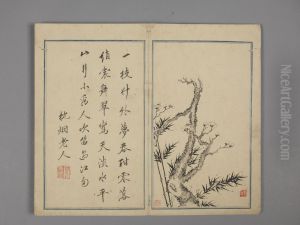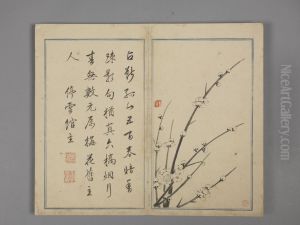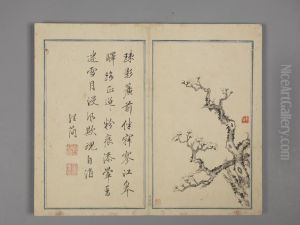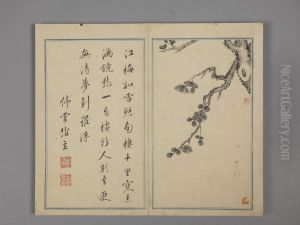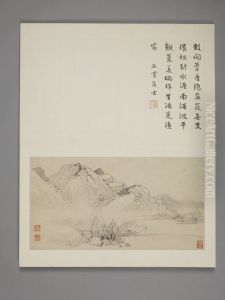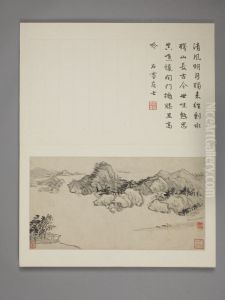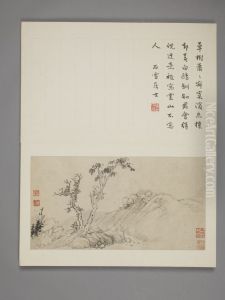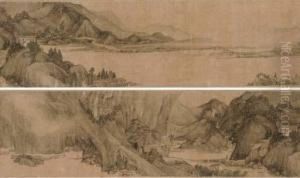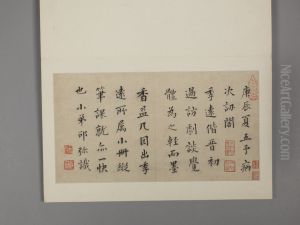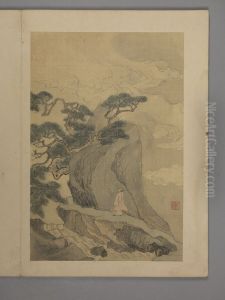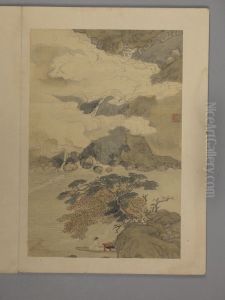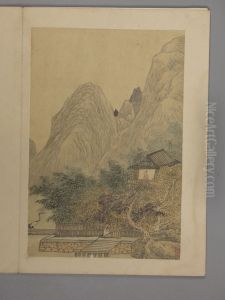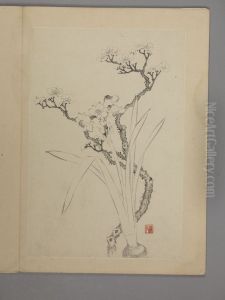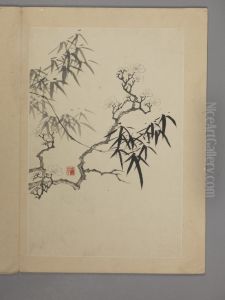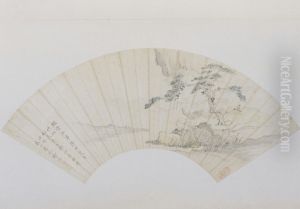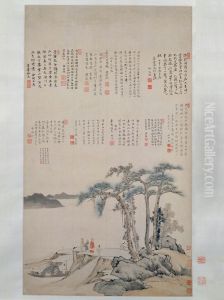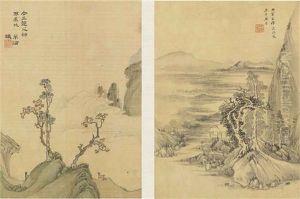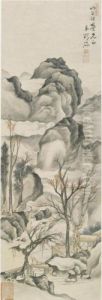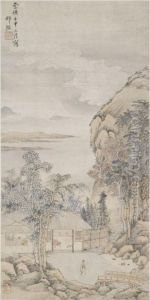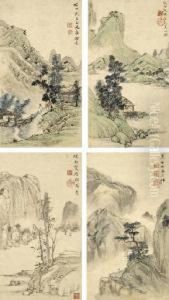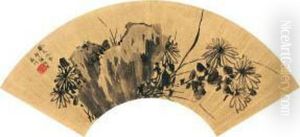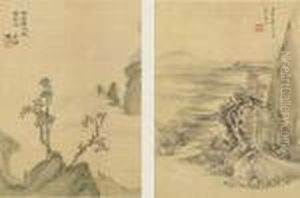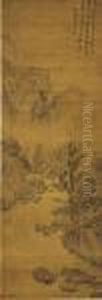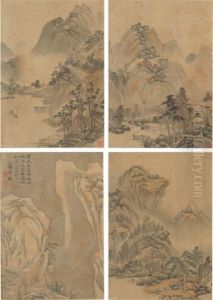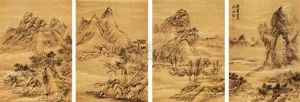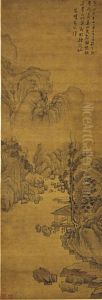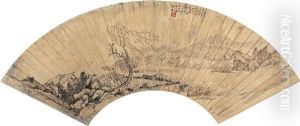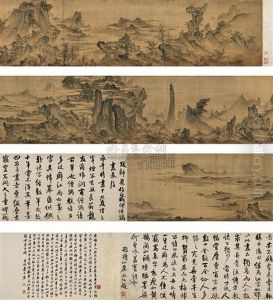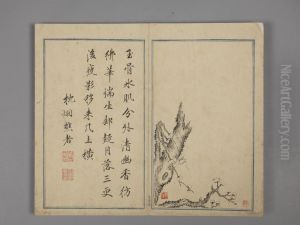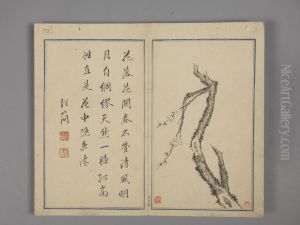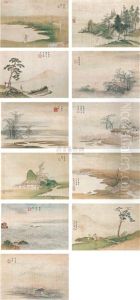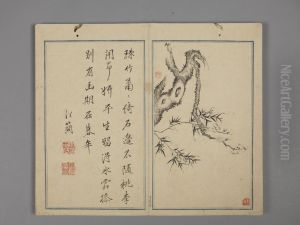Shao Mi Paintings
Shao Mi, also known as Shao Weichen, was a Chinese painter, poet, and calligrapher during the late Ming and early Qing dynasties. He was born in 1592 in Haining, Zhejiang province. Shao Mi is particularly noted for his landscape paintings, which often incorporated the 'mi dot' technique, named after the Song dynasty artist Mi Fu. This technique involves the use of small, round ink dots to texture mountains and rocks, a stylistic feature that Shao Mi adapted and made his own.
Shao Mi's life spanned a tumultuous period in Chinese history, as he witnessed the fall of the Ming dynasty and the establishment of the Qing dynasty. Despite the political upheavals, he was part of the 'Songjiang School' of painting, a group of artists who focused on the expressive possibilities of landscape painting and were known for their individualistic approaches and often reclusive lifestyles.
In his artwork, Shao Mi frequently combined painting, poetry, and calligraphy, creating pieces that were highly valued for their literary as well as their visual qualities. His landscapes often depict serene, idealized scenes that evoke a sense of peace and harmony, which was perhaps a response to the chaotic times in which he lived.
As a poet, Shao Mi was skilled in the ci form, a type of lyric poetry that flourished during the Song dynasty. His poetry often echoed the themes found in his paintings, focusing on the natural world and the passing of time. This integration of different art forms was typical of literati artists of the period, who were scholar-officials and intellectuals as well as artists.
Shao Mi's works have been preserved in various collections and are studied for their contribution to the development of Chinese landscape painting. He died in 1642, leaving behind a legacy that would influence later generations of Chinese artists. His style, particularly his use of the 'mi dot' and his integration of poetic inscriptions in his paintings, continued to be admired and imitated by later painters who sought to capture the essence of nature and the spirit of literati culture.
